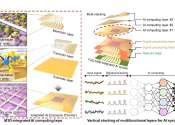Beyond higher temperatures: Preparing for national security risks posed by climate change
When talk turns to climate change, certain images pop to mind—maybe polar bears on ever-shrinking ice floes, coral reefs drained of color, or more powerful hurricanes hitting the coast.









